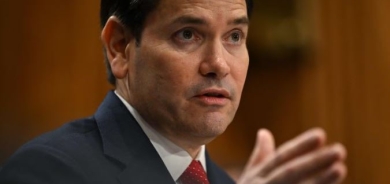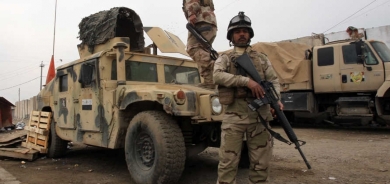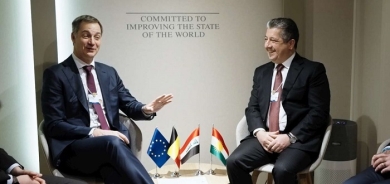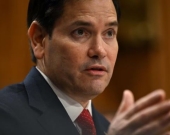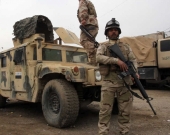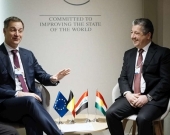Turkey may have problems. But it also has plenty to teach the rest of a very troubled neighborhood
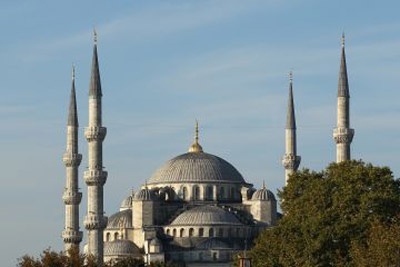
ISTANBUL, Turkey – As violence and despair spread once again across the Middle East, this great city could be the poster child for all that is right in the Islamic world.
Turkey’s success as a mostly well-functioning democracy with a vibrant economy and tolerant multidimensional society represents a model of stability in this rough and tumble neighborhood, particularly as we watch so much of the Middle East and North Africa confront violence, repression and ruthless sectarianism.
This is a sprawling city of 15 million people sitting confidently astride the point where the European and Asian continents converge, and the historic capital of three empires – the Roman, Byzantine and Ottoman.
A predominantly Muslim nation, Turkey has made enormous progress in recent decades building credibility on the world stage, while forging an economy that has roughly tripled in size over the past dozen years.
To be sure, Turkey is not without its problems.
Prime Minister Recip Tayyip Erdogan demonstrates authoritarian tendencies and has been accused of corruption. Moreover, Turkey jails more journalists than any country in the world, according to the Committee to Protect Journalists.
And Tuesday, Erdogan’s Deputy Prime Minister Bulent Arinc sparked an outcry when he said women should not laugh loudly in public (he also lambasted their use of mobile phones, accusing them of “spending hours on the phone to swap recipes”).
Yet as powerful as it may be, Erdogan’s government does not always get its way, as demonstrated by a recent walk around Gezi Park.
Situated in the very heart of the European side of Istanbul, Gezi Park was the scene of massive violent protests last summer over the government’s plan to bulldoze the park, one of the few remaining in Istanbul, in order to build yet another shopping mall.
On this July day all was peaceful with families and couples enjoying the breeze in the shade of the park’s many trees. The people won the battle over Gezi Park, forcing the prime minister to back down.
But in nearby Taksim Square, Erdogan campaign posters are on prominent display, as they are throughout the city, as he makes a run to be president of the republic. Erdogan is not eligible to serve a fourth term as prime minister. The presidential election will be held Aug. 10 with a second round, if needed, on Aug. 24.
It’s hard to find much overt enthusiasm for Erdogan in this cosmopolitan city, but most experts believe he will win the presidency. It’s also widely expected that the Turkish parliament, which is controlled by his Justice and Development Party (AKP), will approve changes that will give the president-elect enhanced powers.
Although there is historic discrimination in Turkey, particularly against Armenians, Kurds and Greeks, there is a decided air of tolerance in Istanbul. Many women wear the headscarf and the muezzin’s call to prayer is heard throughout the city from its scores of mosques. But the dress and lifestyles are as diverse as any you would find in Berlin or London.
At night the kaleidoscope of lights on both sides of the Bosphorus Strait — the busy waterway that divides the city into its European and Asian halves — frames one of the most beautiful panoramas in the world and the city’s many prosperous neighborhoods pulse with life in their waterfront cafes and nightclubs. During this visit, families poured forth after sunset to take the evening meal, or iftar, after fasting since sunrise during the holy month of Ramadan.
Turkey is also deeply engaged in the region’s many problems, most notably in the civil war in neighboring Syria. Syrian refugees have flooded into Istanbul, with mothers and small children begging for money on many of the city’s streets — an inescapable reminder of the devastation that civil war has imposed on Syria with millions of displaced people.
Turkey alone has taken in nearly 670,000 Syrian refugees, according to the Migration Policy Centre. That is more than a quarter of the total two and half million Syrians the United Nations High Commissioner for Refugees (UNHCR) estimates have fled to neighboring countries over the past three years of the war. That’s a considerable burden for Turkey, with an estimated cost for refugee relief of $1.5 billion through May 2013.
As war rages in Gaza, as Libyan militias battle for control in Tripoli, and as the so-called Islamic State continues to impose its brutal and bloody form of Islam on large parts of Syria and Iraq, it’s well worth remembering that this region has produced a better way.
Time spent in Istanbul can lift the spirit in a very dark period.
Philip S. Balboni is the CEO, co-founder and editor-at-large of GlobalPost and writes an occasional column on international affairs.
GlobalPost


